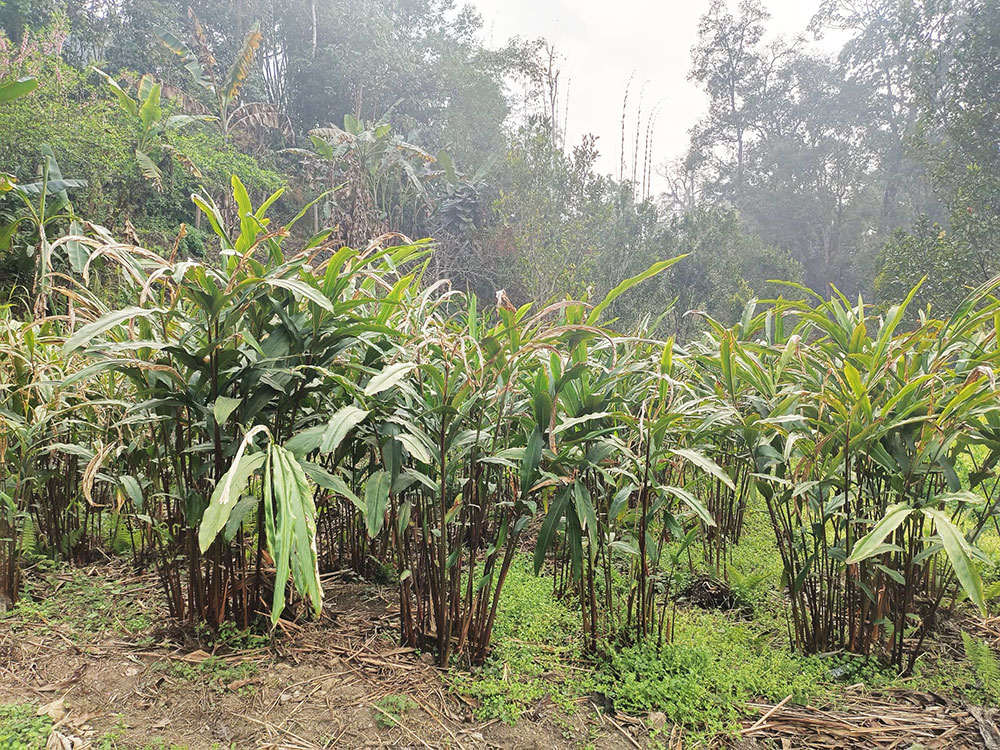Lhakpa Quendren
Tsirang—Five years ago, Bal Bahadur Rai in Soentabsa village, Tsirangtoed, planted cardamom on 20 decimals, hoping for a bountiful harvest. However, even today, the plants are struggling to grow as expected.
As Tsirangtoed continues to face acute water shortages, farmers are abandoning cardamom farming, which had once sparked excitement among them as the most lucrative commercial venture.
Expressing his disappointment with the meagre cardamom yields, Bal Bahadur Rai said, “The water shortage is severely impacting agricultural activities, leaving us with no option but to give up. Cultivating cardamom merely occupies the plots, so I have decided to discontinue it.”
When he first started cardamom cultivation, he had plans to gradually expand his farming if it produced yields as good as those of his neighbouring gewogs. “I could only produce about five kilograms. Now, the plants are drying up due to lack of water.”
Dendup, a 27-year-old, said that the water scarcity e aggravated the already arduous task of agriculture. “The input is more, but the outcome is less. This has demotivated the farmers, and they continue to give up.”
“The production has been declining yearly. In the past years, I produced about two to three sacks of cardamom from about 20 decimal plots. But I could not produce even a kilogram this season,” he added.
The farmers are also facing challenges with drinking water, let alone having enough for irrigation in agricultural activities. Currently, water is released on a scheduled basis for six hours a day, and others would complain if anyone uses water for agricultural activities, according to the villagers.
The farmers say that the water issue has been further aggravated following the establishment of the hospital in the gewog, as the water supply has been divided.
The farmers cultivate vegetables such as maize, cabbage, and green peas, which do not require intensive watering. However, these crops will not thrive without sufficient rainfall.
“We grow these vegetables in greenhouses for both self-consumption and commercial purposes, and sell them to teachers and other civil servants working nearby offices,” Dendup said.
The farmers are unable to engage in large-scale commercial farming due to severe water shortages. Some lands remain barren, leading to the drying up of mandarin trees.


